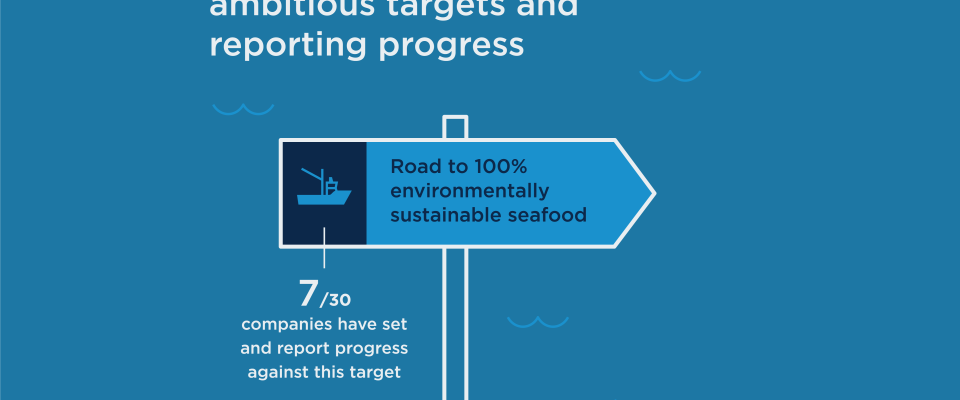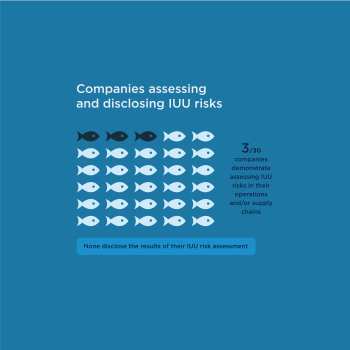Key finding
To avoid empty promises, companies need to set ambitious targets and report progress

The seafood industry plays a crucial role in advancing the Sustainable Development Goals (SDGs). Overfishing is one of the primary threats to biodiversity in the oceans (SDG14), underscoring the industry’s pivotal position. Aquaculture has surpassed wild-caught fish in global consumption, requiring a careful addressal of its adverse impacts on land-based ecosystems and biodiversity (SDG15). The livelihoods of over half a billion people are dependent on the seafood industry (SDG8). With developing countries being the source of 60% of all international seafood trade, the industry has a key role to play in poverty alleviation (SDG1). Women in particular have a substantial presence in secondary activities within the value chain, which is often low paid and labour intense work, highlighting the imperative of promoting gender equality in the industry (SDG5).
To effectively address these formidable challenges, companies must take a crucial step by establishing ambitious targets and transparently reporting their progress. This is necessary to be able to hold companies accountable for their actions: both to reward companies that are leading the way, as well as to penalize those that are lagging behind.
However, only five out of the 30 companies assessed (Cargill, Charoen Pokphand Group, Nueva Pescanova, Nutreco and Thai Union) have established targets covering all major relevant sustainability areas, including social, environmental and traceability topics.
Setting targets
Of the sustainability topics looked at in the benchmark, the issue that companies best perform on in this respect is gender equality and women’s empowerment in their own operations – almost half of the companies have a time-bound target. Disappointingly, performance across all other topics is a lot lower. For example, only seven companies have set and report on a sustainability target to achieve 100% environmentally sustainable seafood. Only two companies (Nomad Foods and Nueva Pescanova) have a time-bound target to achieve traceability. And only three companies (Cargill, Nutreco and Thai Union) report against a Deforestation and Conversion-Free (DCF) target.
Reporting against targets
Critically, two-thirds of companies in the benchmark do not provide the necessary reporting requirements to effectively monitor progress against all the targets they have set. This generates a significant risk of greenwashing, by which companies create the appearance of working towards sustainability objectives while providing no way of tracking their efforts.
To avoid making empty promises and to demonstrate their commitment towards sustainability, companies need to set SMARTER targets: Specific, Measurable, Ambitious, Relevant, Time-bound, Evaluated, and Reviewed. In addition to setting targets covering all the material sustainability topics for the company, they must also make sure that progress is measured and transparently reported year-on-year. For this to be possible, targets should be science-based, need to have a baseline and an end-year, progress has to be trackable, and ambitions should be periodically reviewed to ensure they reflect internationally agreed-upon sustainability goals (e.g., SDGs, Paris Agreement, Global Biodiversity Framework). Where possible, companies should strive to align with major reporting standards such as TNFD, ISSB, and the EU’s Corporate Sustainability Reporting Directive (CSRD).
